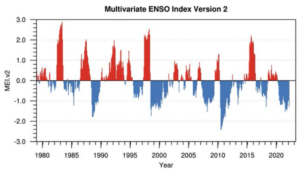by A. May, Apr 17, 2022 in WUWT
The Climate Feedback website critiques my CO2Coalition article “Attributing global warming to humans.”Their factcheck is here. Like most “fact checks” these days it is a thinly disguised opinion piece. The statement that they claim is incorrect is:
“There is no evidence, other than models, that human CO2 emissions drive climate change and abundant evidence that the Sun, coupled with natural climate cycles, drives most, if not all, of recent climate changes, as described in Connolly, et al., 2021.” [emphasis added]
They cleverly leave out the last phrase: “as described in Connolly, et al., 2021,” and then immediately assert “Solar irradiance has had a negligible impact on Earth’s climate since the industrial era.” This is followed by no evidence other than an appeal to the mythical “consensus.”
Later in the article, they say Connolly, et al. uses simple linear regression to establish a link between solar irradiance and surface temperature. Connolly, et al. does not state that the Sun controls the climate or that humans do, it simply shows that, using available evidence, solar variability (actually TSI, or Total Solar Irradiance variability) could account for anywhere from 0 to 100% of the warming since the Little Ice Age (the so-called “pre-industrial” era). One of the main points of Connolly, et al. is that the IPCC and the so-called “consensus” are ignoring two critical areas of current research. First, they ignore the uncertainty in our estimate of surface warming since the Little Ice Age, and second, they ignore the considerable uncertainty in solar-variability-long-term trends, both recently and since the Little Ice Age. As they state in the paper, the amount of 20th century warming that can be simulated as due to solar variability, depends upon the surface temperature dataset and the solar TSI model used. There are many versions of both. Suffice it to say, while the exact influence of human activities and solar variability on climate change are both unknown, no one can claim solar influence is negligible. The correct answer is we don’t know.
…

